
Copernical Team
Two Russians, American reach space station
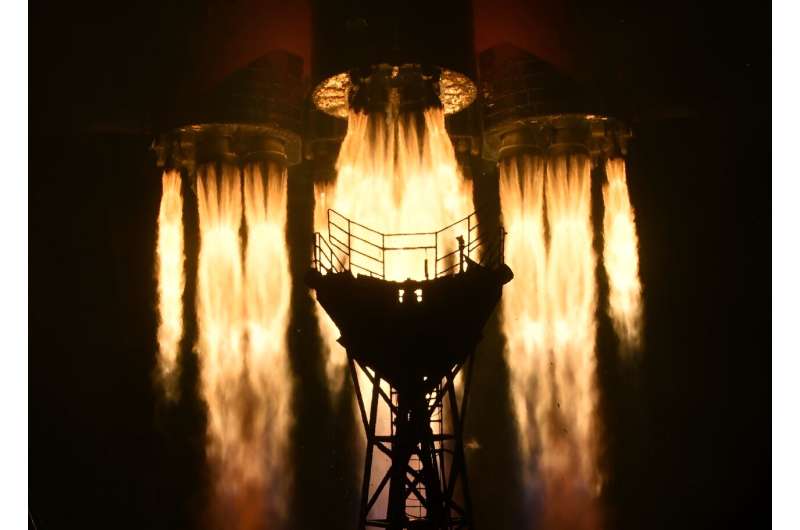
Two Russian cosmonauts and an American astronaut docked with the International Space Station on Friday after blasting off amid raging tensions between Moscow and Washington over Ukraine.
Earlier Friday Roscosmos cosmonauts Oleg Kononenko and Nikolai Chub and NASA astronaut Loral O'Hara lifted off from the Baikonur cosmodrome in Kazakhstan aboard the Soyuz MS-24 spacecraft.
The crew docked at the ISS three hours later, the Russian space agency said.
At the orbiting station, the trio will join three Russians, two Americans, a Japanese astronaut and a representative of the European Space Agency.
The liftoff took place after Russia's first lunar mission in nearly 50 years failed last month.
The ISS is a rare venue for cooperation between the United States and Russia, whose ties broke down after Moscow unleashed its offensive in Ukraine last year.
Exploring the lunar south pole: Lessons from Chandrayaan-3
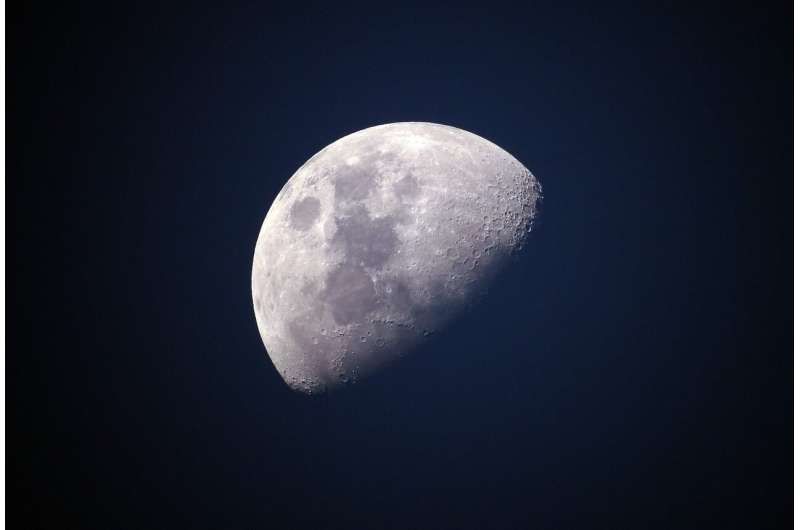
On August 23 the Indian Space Research Organisation (ISRO) successfully landed a spacecraft on the moon's south pole, a location that has always been of particular interest to scientists due to the unique conditions created by the planet's extremities.
The moon rover, Chandrayaan-3, which recently completed its 14-day mission, made history by landing on the lunar south pole. Dr. Laura McKemmish, an astrochemist from UNSW Sydney, explains the significance of the mission and what the future holds for lunar exploration.
"This is the first landing of India on the moon, and it will make India the fourth country ever to land on the moon," says Dr. McKemmish. "The ability of our global civilization to go into space exploration is really, really crucial to enable humankind as a global community to explore elsewhere in the universe."
Interest in the southern pole of the moon stems primarily from the fact that scientists have been aware of the presence of frozen water there, and locating water is a large part of Chandrayaan-3's mission. "Identifying frozen bodies of water on the moon is a really important gateway for further space discovery in our solar system.
NOAA's GOES-U completes environmental testing
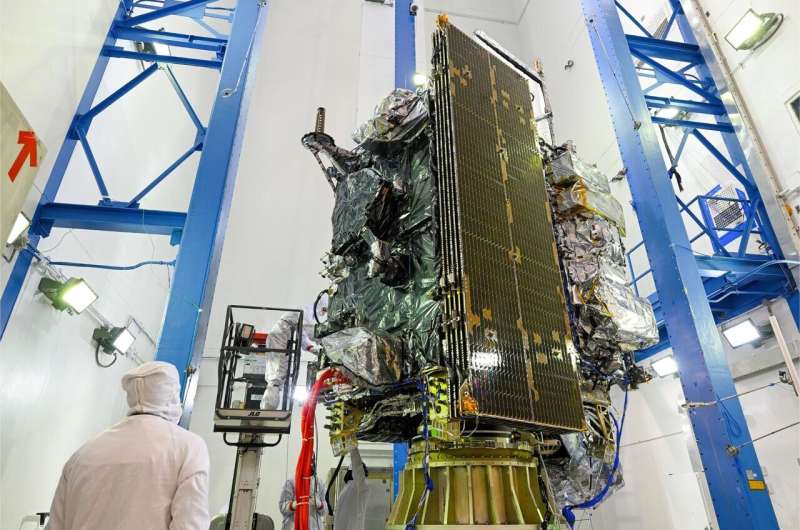
GOES-U, the fourth and final satellite in NOAA's GOES-R Series of advanced geostationary satellites, recently completed rigorous testing to ensure it can withstand the harsh conditions of launch and orbiting in space 22,236 miles above Earth.
The testing process spanned nearly a year. During thermal vacuum testing, completed in November 2022, GOES-U was placed in a large 29-foot wide by 65-foot deep (9 meter by 20 meter) chamber and subjected to a vast range of temperatures, soaring as high as 188 degrees Fahrenheit (87 degrees Celsius) and dropping as low as minus 67 degrees Fahrenheit (minus 55 degrees Celsius) to simulate the extreme temperatures of launch and the space environment.
In February 2023, GOES-U completed vibration testing, which mimics the stresses it will experience during launch to ensure the satellite doesn't have structural weaknesses.
One American, two Russians blast off in Russian capsule to International Space Station
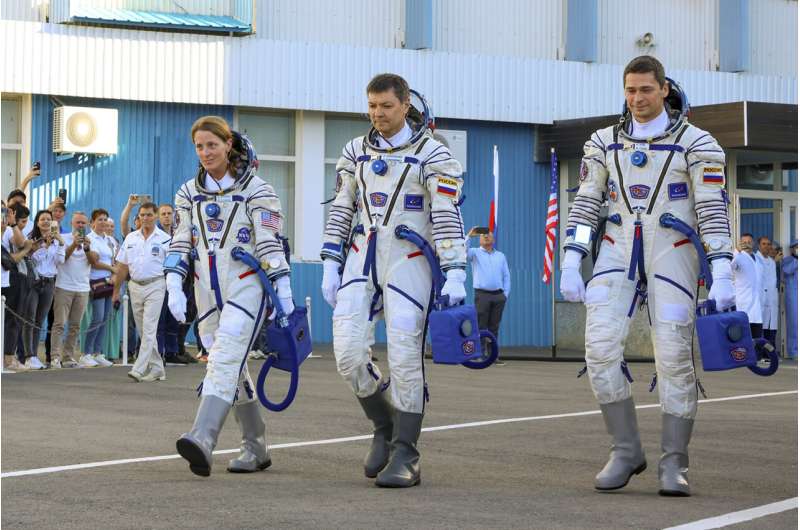
One American and two Russians blasted off Friday aboard a Russian spacecraft on a quick trip to the International Space Station.
Germany joins NASA's Artemis accords as newest signatory
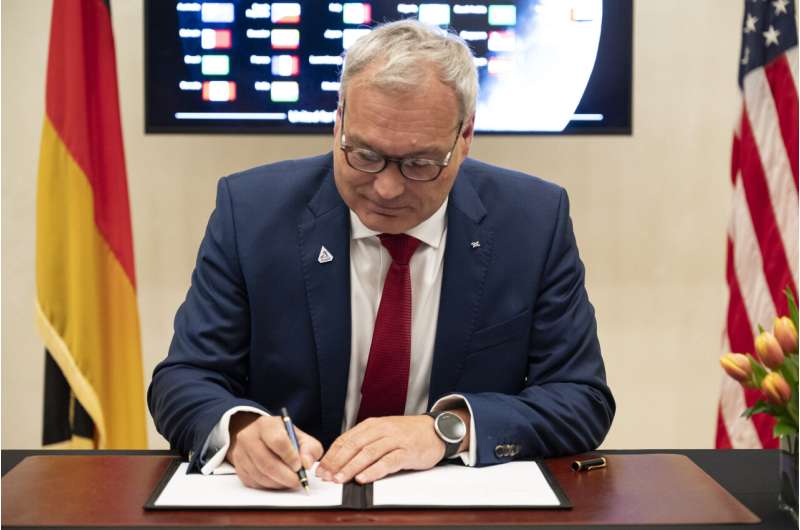
During a ceremony at the German Ambassador's Residence in Washington on Thursday, Germany became the 29th country to sign the Artemis Accords.
NASA says more science and less stigma are needed to understand UFOs
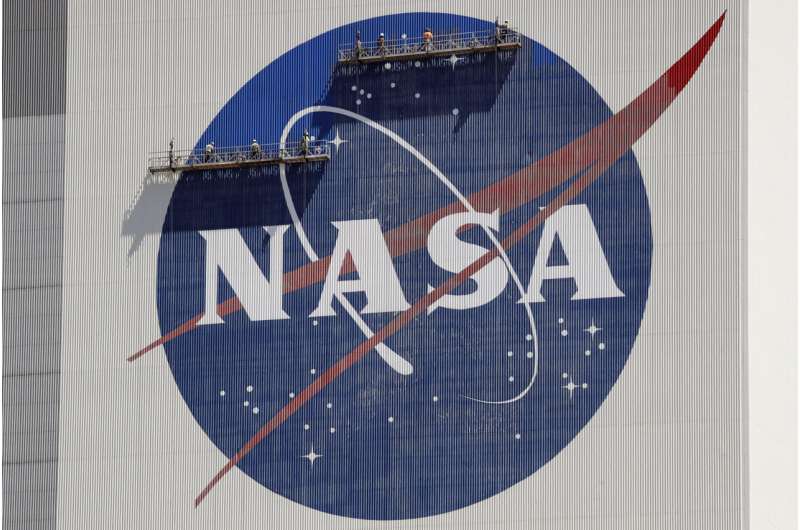
Germany blocks full Chinese takeover of satellite startup
 Germany has blocked a complete Chinese takeover of a satellite startup on national security grounds, sources close to the matter told AFP Thursday, as Berlin takes an increasingly hard line against Beijing.
Concerned at the heavy reliance of Europe's top economy on China, Chancellor Olaf Scholz's government has been pushing to "de-risk" and dial back dependencies.
The German tech company
Germany has blocked a complete Chinese takeover of a satellite startup on national security grounds, sources close to the matter told AFP Thursday, as Berlin takes an increasingly hard line against Beijing.
Concerned at the heavy reliance of Europe's top economy on China, Chancellor Olaf Scholz's government has been pushing to "de-risk" and dial back dependencies.
The German tech company COSPAR new program seeks to build SmallSat capacity in Developing Countries
 The Committee on Space Research (COSPAR) is pleased to announce the launch of a new Capacity Building program through collaboration in the field of small satellites (Small Sats). Institutes and universities in developing countries which are interested in developing small satellites by setting up or expanding a local laboratory are invited to join the project.
The program is expected to inc
The Committee on Space Research (COSPAR) is pleased to announce the launch of a new Capacity Building program through collaboration in the field of small satellites (Small Sats). Institutes and universities in developing countries which are interested in developing small satellites by setting up or expanding a local laboratory are invited to join the project.
The program is expected to inc Sols 3948-3949: A Rocky Road, or Two!
 Earth planning date: Wednesday, September 13, 2023: Our view out of the window, in this case the front hazard camera, is spectacular today, as you can see above. Regular readers of the mission updates will know that this rocky road has caused us problems in our driving lately, but today it all went smoothly. We are planning another 30 metre drive in today's plan, so let's hope Mars will read the
Earth planning date: Wednesday, September 13, 2023: Our view out of the window, in this case the front hazard camera, is spectacular today, as you can see above. Regular readers of the mission updates will know that this rocky road has caused us problems in our driving lately, but today it all went smoothly. We are planning another 30 metre drive in today's plan, so let's hope Mars will read the GMV tests robot for assembly and maintenance of structures in Earth orbit
 Multinational technology company GMV has successfully concluded ground validation tests for a space robot designed to assemble structures in Earth's orbit as part of the European Space Agency's (ESA) MIRROR project (Multi-arm Installation Robot for Readying ORUS and Reflectors). These tests were conducted at GMV's facilities in Tres Cantos, Madrid, in the Platform-art robotic laboratory, where c
Multinational technology company GMV has successfully concluded ground validation tests for a space robot designed to assemble structures in Earth's orbit as part of the European Space Agency's (ESA) MIRROR project (Multi-arm Installation Robot for Readying ORUS and Reflectors). These tests were conducted at GMV's facilities in Tres Cantos, Madrid, in the Platform-art robotic laboratory, where c 